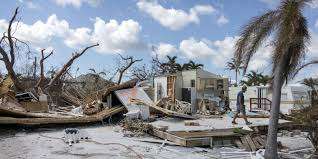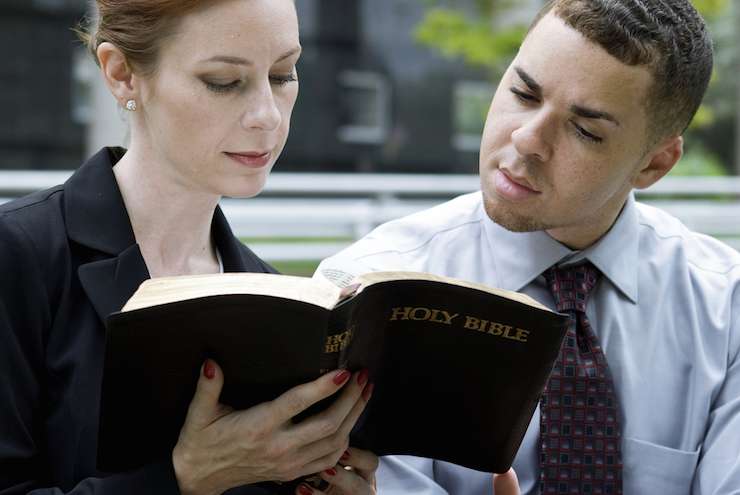

Natural Calamitieis-God's Punishment?
Pr. Joji Mathew
Disasters often raise questions about God and the meaning of life. Does God punish human beings through natural calamities? What should be the Christian perspective on natural disasters? What should be church’s response at such times? Do we need to be silent spectators or do such occasions call for active involvement? These are pertinent questions to be answered. This article tries to explore such important concerns.
Natural calamities and its upshot
Natural disasters are extreme, sudden events caused by environmental factors that injure people and damage property. Earthquakes, windstorms, floods, droughts and disease strike anywhere on earth, often without warning. Natural calamities are common events. We see nations helpless at the time of such calamities. The developed nations are advanced in scientific inventions and defense power. But even they are not capable to stop such calamities. Anytime is a time for natural disasters. Even when we are in the safety of our home, natural disasters can strike. According to a study on natural disasters each year around 250,000 people die from Natural Disasters. The educated and uneducated, black or white, rich or poor, theist or atheist – all are are affected by natural calamities. Poverty, vulnerability and disasters are linked - it is most often the poorest that are worst affected and suffer the most. Their poverty makes them more vulnerable. Their capacity to cope with disasters and recover from the effects is constrained by their lack of resources. Earthquakes, flood, drought, Tsunami, there are unending natural disasters. They are unpredictable also. There are scientific means to predict the natural calamities. But they have proved their incapability. Otherwise, the effects of Tsunami in 2004 would not have so atrocious.
God as the Creator and Sustainer
When we discuss Christian response to natural calamities, it is important to understand the Christian perception on God. Bible establishes the fact that God is the Creator and Sustainer. ‘Creatio ex nihilo’ or ‘creation out of nothing’ is the major concept regarding creation. The Sovereign God Elohim created the heavens and the earth. Bible is against the Deistic understanding that God has set some rules and God doesn’t interfere in the function of the world. In Biblical understanding, God interferes in the nature and history. In Christian understanding God is the eternal being who created and preserves the world. Christians believe God to be both transcendent (wholly independent of, and removed from, the material universe) and immanent (involved in the world). Human beings have a unique place in creation. Human beings are supposed to be the stewards of nature. God cares not only for human beings but for the entire creation. God is concerned about both living and non-living things. God is all-knowing and all-powerful. There is nothing that happens without the knowledge of God. Everything that happens is with God’s knowledge. Christian theology discusses the incommunicable attributes and communicable attributes of God. The eternal God is loving, merciful and gracious also. It is with this understanding of that we need to discuss the next section.
Does God punish man through natural calamities?
Are natural calamities a punishment from God? This is a pertinent question. Our attitude to victims depends on how we answer this question. If we consider natural calamities as punishment then we look at them with contempt. There are Christians who consider natural disasters as God’s punishment. Then they blame the victims.
We have no answer for all the problems. At the time of any natural hazards the question is ‘why’. We cannot generalize the matter and say that it is because of the sin or the evil doing of the people affected. In any such event, a lot of innocents are affected, just as women and children are included. When natural calamities occur both the godly and ungodly suffer. The flood in Genesis 6-8 is described as a direct and universal judgment on human beings because of their persistent and deliberate disregard of God’s moral codes. After the flood, God promised not to bring such a universal disaster on the whole of creation again. This does not mean the end of natural disasters, but it does indicate that they will be more limited in their impact. The flood in the Noahic period was God’s judgment. Then the righteous were preserved. But in case of present disasters all are equally affected. Even innocents suffer. Therefore, is it theologically and logically wrong to consider them as God’s punishment.
It is true that God can use natural calamities as a means of judgment. But God won’t do that. At least it is not good for us to consider such incidents as punishment or to call the victims ‘sinners’. This is an unbiblical attitude. The victims deserve mercy. The affected people are not sinners. They are not worse than others. In this regard Jesus response in Luke 13: 1-5 can be referred. We read in Luke 13:1-5: “And some were present at the same time reporting to Him of the Galileans whose blood Pilate had mixed with their sacrifices. And answering, Jesus said to them, ‘Do you suppose that these Galileans were sinners above all the Galileans because they suffered such things? I tell you, No. But unless you repent, you will all likewise perish. Or those eighteen on whom the tower in Siloam fell and killed them, do you think that they were sinners above all men who lived in Jerusalem? I tell you, No. But unless you repent, you will all likewise perish.”
It is important to consider the same issue in another way. God has put some order in the cosmos. When this order is broken it is natural to have calamities. Human beings are destined to be keepers of the earth. When human beings become exploiters it is natural to have calamities. In a sense, natural calamities remind us of God. It reminds us of the God given responsibilities. They act as a warning also. We will reap what we sow. Human beings have done big damage to nature. We, who are supposed to be the keepers of the earth have failed in our obligations. The ecological crisis of the present day cannot remain unnoticed. Human beings have caused great damage to the environment. We are supposed to be the stewards of the riches of the earth.
The Bible tells us that disasters will continue until the time when Jesus comes to this earth again, a mission which will bring full restoration of relationships between people, God and the environment. In Matthew 24:4-8 (see also Mark 13:5-8, Luke 21:8-11) Jesus says that famines, earthquakes and war will characterize the time between his first and second coming. As we are in the world we are susceptible to sickness, natural calamities and death. But when we look at these with the hope put before us we get the right perspective. God’s ultimate will is to renew creation so that natural disasters cease forever. In 2 Peter 3:13 we read: “But according to His promise, we look for new heavens and a new earth in which righteousness dwells.”
Church’s response and involvement
Whatever the reason, we do not need to condemn the people or nations who are affected. Blaming the affected is not displaying true Christian attitude. Blaming God is also not ideal. God is merciful and we also need to be merciful. Christians need to respond with empathy. Christians are called by God to serve and bless those around them. The following Bible passages make it clear: Mark 6:35-44, Luke 10:25-38, John 13:1-17, Acts 2:42-47, James 2:14-17, 1 John 3:16-18.
Christians are to actively participate in the helping process when natural calamities occur. Active involvement is called for. Churches are bound to extend helping hands to the afflicted. We read in Acts 11:27-30: A famine was predicted by prophecy, and the church in Antioch decided to provide help for the Christians in Judea. It is the duty of the Christians to extend their help to non-Christians also. We should not have a judgmental attitude towards the victims. Instead we need to look at them with compassion and have a non-judgmental attitude. We read in Proverbs 17:5 “Whoever scorns the poor reviles his Maker; he who is glad at calamities shall not be unpunished.” The Christian response is four-fold – humility, faith and trust in the sovereign will of God, compassion and practical help for those caught up in the disaster, an offering of repentance from sin and forgiveness and eternal life to those affected, and hope for a new world without such disasters.
Conclusion
Natural calamities can affect anybody. Christians need to have the right perspective on such disasters. It is meaningful to preach about sin and God’s judgment any time. But it is unethical to mention a particular disaster as God’s punishment. It is not Christ like to blame the victims. Jesus’ attitude is the model for Christians. He was compassionate. He loved the sinners and tax collectors. Christian priority is to help those who are affected. It is unbiblical to hold a judgmental attitude. Natural calamities can lead the society to new consciousness and we cannot do that by telling the afflicted that they are punished by God. May we always show Christian love to the afflicted.



